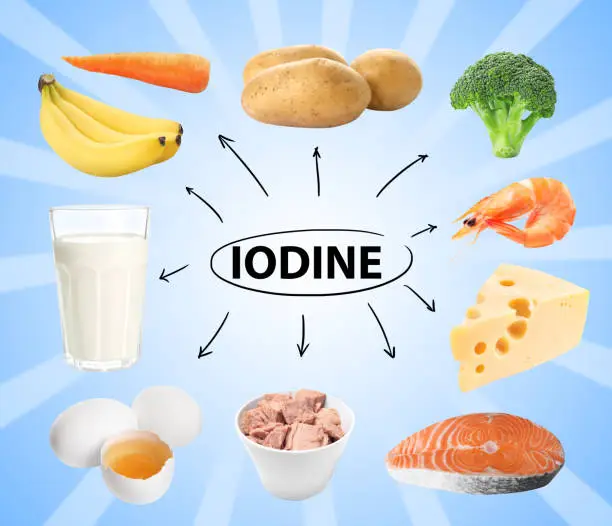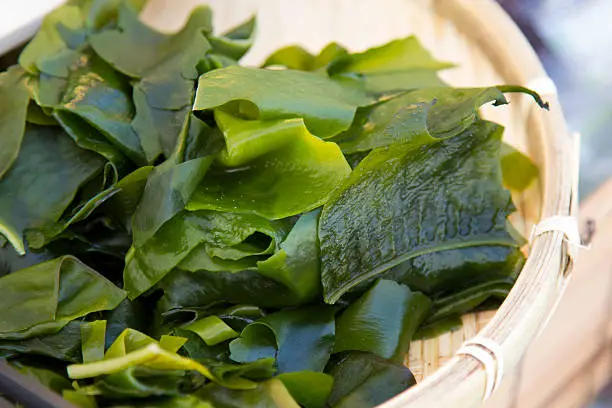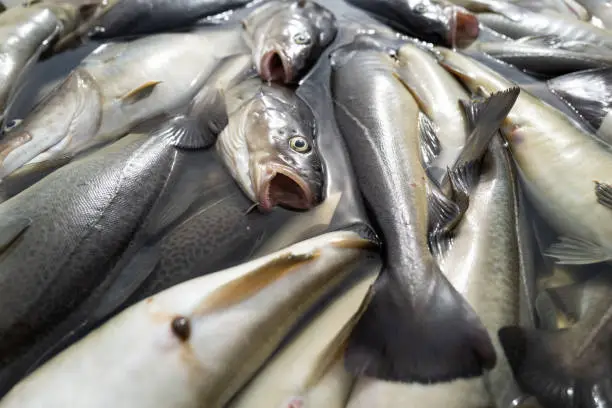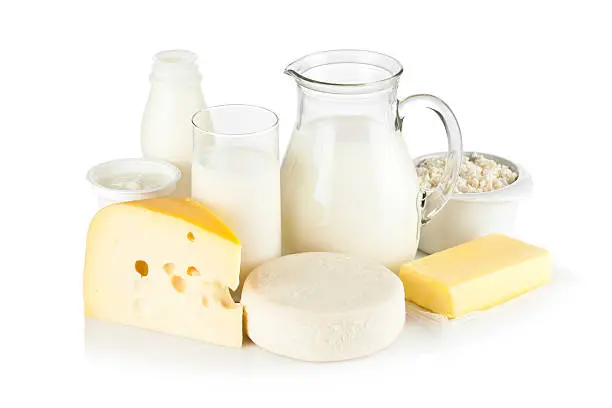Introduction
Iodine rich foods are essential for naturally supporting your thyroid health, maintaining proper hormonal balance, metabolism, and energy levels. Iodine is an important micro nutrient that the thyroid gland uses to produce thyroid hormones, which regulate a number of bodily functions. Iodine deficiency can lead to hypothyroidism, goiter, fatigue, and cognitive problems. In this in-depth guide, we explore 10 scientifically-backed, iodine rich foods including fruits and vegetables to help naturally improve thyroid health.
Read in Detail About: [Causes of Hypothyroidism ] and [Causes of Goiter in Females]
Why is iodine important for thyroid health?
The thyroid gland needs iodine to synthesize two important hormones: thyroxin (T4) and triiodothyronine (T3). These hormones are responsible for metabolism, brain development, and cellular repair. When iodine levels are low, thyroid hormone production slows down, leading to hypothyroidism and its associated symptoms such as lethargy, depression, weight gain, and dry skin.
Adding iodine rich foods to your diet is a powerful and natural way to support your thyroid gland without relying too much on artificial supplements.
1. Seaweed – Most proven iodine rich food
Seaweed specifically kelp, nori, wakame, and dulse is by far the most food sources of iodine for thyroid on the planet. Just one dried sheet of nori (about 1 gram) contains 232 mcg of iodine, which is more than 150% of the daily recommended intake.
Kelp (1 gram dried): Up to 2,000 mcg of iodine
Wakame (1 tablespoon): About 80 mcg
Dal Flakes (1 tablespoon): About 70 mcg
Important tip: Use in moderation – too much iodine can also affect thyroid function.
2. Cod – A Lean Fish Packed with Iodine
Cod is a low-fat, high-protein fish that provides a healthy iodine punch. A 3-ounce cooked serving provides about 99 mcg of iodine, which is equivalent to 66% of the Daily Value (DV).
In addition to iodine, cod is rich in selenium and vitamin B12, both of which are important for thyroid and overall metabolic health.
3. Dairy Products – Milk, Yogurt, and Cheese
Dairy products are the best food sources of iodine for thyroid and easily available in majority of countries.
1 cup milk (whole or low-fat): ~85 mcg
Plain yogurt (1 cup): ~75 mcg
Cheddar cheese (1 ounce): ~12 mcg
Yogurt, in particular, supports gut health, which plays a role in thyroid hormone conversion.
4. Iodized Salt – A Convenient and Reliable Option
Regular iodized salt is one of the most accessible among the food sources of iodine for thyroid globally. Just 1/4 teaspoon contains about 76 mcg of iodine, which meets half of the recommended daily intake.
Note: Limit sodium intake for heart health. Use iodized salt in moderation while ensuring your iodine intake from all other foods.
5. Eggs – A Nutrient-Dense Powerhouse
Eggs, especially the yolk, provide a solid dose of iodine along with selenium, choline, and healthy fats.
1 large egg: ~24 mcg iodine (16 percent of the DV)
Incorporating eggs into your breakfast routine is an easy way to boost thyroid support.
6. Shrimp – Iodine and Protein in One Bite
Shrimp is another seafood rich in iodine, low in calories and high in lean protein.
3 ounces cooked shrimp: ~35 mcg iodine
Shrimp also contains zinc, which is important for hormone production and immune function.
7. Cranberries – The Best Iodine-Rich Fruit
Among fruits, cranberries stand out for their natural iodine content.
4 ounces (½ cup) raw cranberries: ~400 mcg iodine
This is over 260% of the DV, making cranberries one of the best fruits for thyroid health. Choose fresh or unsweetened dried versions to avoid added sugar.
8. Strawberries – Sweet, juicy, and iodine-friendly
Strawberries provide a modest but helpful amount of iodine and can be eaten regularly as part of a thyroid-supporting diet.
1 cup strawberries: ~13 mcg iodine
They are also packed with antioxidants and vitamin C, which promote immune and skin health.
9. Potatoes – A vegetable source of iodine
White potatoes, especially with the skin, are among the best iodine-rich vegetables.
1 medium baked potato (with skin): ~60 mcg iodine
Pair them with lean protein and healthy fats for a balanced thyroid-friendly meal.
10. Navy beans – A plant-based iodine option
Leaves, such as navy beans, are great for vegetarians or vegans looking for iodine-rich options.
1/2 cup cooked navy beans: ~32 mcg iodine
They are also a good source of fiber, iron, and plant-based protein.
Bonus: Other Fruits and Vegetables with Trace Iodine
While most fruits and vegetables are low in iodine, some still offer modest contributions:
Bananas: ~3 mcg per medium fruit
Corn: ~14 mcg per ½ cup cooked
Green beans: ~3 mcg per ½ cup
These can also be beneficial when included in a varied, whole foods-based thyroid diet.
How much iodine do you need daily?
According to the World Health Organization (WHO) and NIH, the Recommended Dietary Allowance (RDA) for iodine is:
150 mcg per day for adults
220 mcg per day for pregnant women
290 mcg per day for breastfeeding mothers
A diet rich in the foods above can easily help you naturally meet or exceed these requirements.
Foods That Are Not Good for Hypothyroidism
When managing hypothyroidism, it’s not just about what you should eat it’s equally important to know which foods can interfere with your thyroid function. Certain foods can impair the absorption of thyroid medication or suppress thyroid hormone production, making your symptoms worse. Here’s a breakdown of the top foods that are not good for hypothyroidism:
1. Soy-Based Products
Soy contains compounds known as isoflavones, which may interfere with thyroid hormone synthesis. Excessive soy consumption can inhibit the body’s ability to absorb levothyroxine, the most commonly prescribed thyroid medication. If you have hypothyroidism, it’s best to limit or avoid soy milk, tofu, tempeh, and soy-based protein supplements.
2. Cruciferous Vegetables (Raw)
Vegetables like broccoli, cauliflower, cabbage, kale, and Brussels sprouts contain goitrogens, substances that can suppress thyroid function, especially when eaten raw. Cooking reduces goitrogenic activity, so steaming or sautéing them occasionally is generally safe, especially if you have adequate iodine intake.
3. Gluten-Containing Grains
There is a known link between Hashimoto’s thyroiditis (an autoimmune form of hypothyroidism) and celiac disease. Even in non-celiac individuals, gluten may trigger inflammation or worsen symptoms. Consider going gluten-free if advised by your doctor or if you notice digestive issues after consuming wheat, barley, or rye.
4. Highly Processed Foods
Processed foods are typically high in sodium, which can increase the risk of high blood pressure a common concern in hypothyroid patients. They also lack essential nutrients like selenium, zinc, and iodine, which are crucial for thyroid health. Limit processed snacks, frozen meals, and fast food.
5. Sugary and Refined Carbs
Hypothyroidism often slows metabolism, making weight gain more likely. Excessive intake of sugars and refined carbohydrates (like white bread, pastries, and sweetened drinks) can worsen fatigue and insulin resistance. Choose whole grains and limit added sugar to stabilize energy levels and support weight management.
Conclusion: Balance is the key
Supporting your thyroid doesn’t require drastic changes just smart food choices. Prioritize natural, iodine-rich foods from both animal and plant sources. Include a mix of seafood, dairy, eggs, iodized salt, and iodine-containing fruits and vegetables like cranberries, strawberries, and potatoes.
Always be cautious with excess seaweed or supplements, especially if you have autoimmune thyroid conditions. If in doubt, consult your doctor before making dietary changes.
FAQS
While they can support thyroid function, iodine-rich foods alone cannot reverse hypothyroidism. A balanced diet, medication (if prescribed), and medical guidance are essential.
Yes, excessive iodine can trigger thyroid dysfunction, especially in people with autoimmune thyroid diseases like Hashimoto’s or Graves’ disease.
Adults typically need about 150 mcg of iodine per day. Pregnant and breastfeeding women require more — around 220–290 mcg daily.
To support thyroid health, include the top food sources of iodine for thyroid such as seaweed, eggs, dairy products, and iodine-fortified foods. These help maintain proper hormone levels, aid metabolism, and prevent iodine deficiency, especially in hypothyroid patients.
Cranberries and strawberries are among the best iodine-rich fruits. A ½ cup of cranberries can provide over 260% of your daily iodine needs.
Potatoes (with skin), green beans, and corn offer small but beneficial amounts of iodine, especially when eaten regularly.
🧑⚕️ About the Author
Dr. Asif, MBBS, MHPE
Dr. Asif is a licensed medical doctor and qualified medical educationist with a Master’s in Health Professions Education (MHPE) and 18 years of clinical experience. Through his blogs, Dr. Asif shares evidence-based insights to empower readers with practical, trustworthy health information for a better, healthier life.
⚠️ Medical Disclaimer
This blog is intended for educational and informational purposes only. It is not a substitute for professional medical advice, diagnosis, or treatment. Always seek the advice of your physician or another qualified healthcare provider with any questions you may have regarding a medical condition. Never disregard or delay medical advice based on content you read here.





Leave a Reply